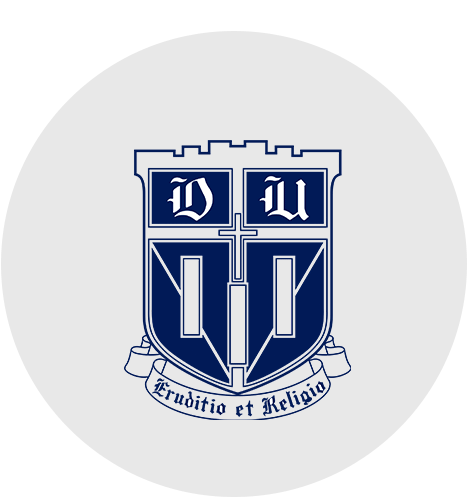Misha Angrist is Senior Fellow in Science & Society, Associate Professor of the Practice at SSRI, and Visiting Associate Professor of the Practice in the Sanford School of Public Policy. He serves as the lead of the Public Impact & Engagement track for the MA in Bioethics & Science Policy and as a faculty mentor, and he is teaching several MA core and elective courses. In his work, he explores the intersection of biology and society, especially as it relates to the governance of human participation in research and medicine. Click for more info.

Faculty Governance Committee

Christopher Bail, PhD
Professor of Sociology, Public Policy, and Data Science
Chris Bail is Professor of Sociology, Computer Science, Political Science, and Public Policy at Duke University, where he directs the Society-Centered AI Initiative and co-founded the Polarization Lab. He studies how artificial intelligence shapes human behavior in a range of different settings—and social media platforms in particular. Click here for more info.

Mark Borsuk, PhD
James L. and Elizabeth M. Vincent Professor of Civil and Environmental Engineering
Affiliation: Pratt School of Engineering
Mark Borsuk’s research concerns the development and application of mathematical models for integrating scientific information on natural, technical, and social systems. He is a widely-cited expert in Bayesian network modeling with regular application to environmental and human health regulation and decision making. He is also the originator of novel approaches to climate change assessment, combining risk analysis, game theory, and agent-based modeling. Borsuk’s highly collaborative research has been funded by NSF, EPA, NIH, NIEHS, and USFS, and he has authored or co-authored 75 peer-reviewed journal publications and 6 book chapters. Click for more info

Robert Calderbank, PhD
Charles S. Sydnor Distinguished Professor of Computer Science
Robert Calderbank is Director of the Information Initiative at Duke University, where he is Professor of Electrical Engineering, Computer Science and Mathematics. He joined Duke in 2010, completed a 3 year term as Dean of Natural Sciences in August 2013, and also served as Interim Director of the Duke Initiative in Innovation and Entrepreneurship in 2012. Before joining Duke he was Professor of Electrical Engineering and Mathematics at Princeton University where he also directed the Program in Applied and Computational Mathematics. Click for more info.

Robyn Caplan, PhD
Assistant Professor, Sanford School of Public Policy; Sr. Lecturing Fellow, Science & Society
Robyn Caplan is a research affiliate at Data & Society and a founding member of the Platform Governance Research Network. Her research, at the intersection of platform governance and media policy, examines the impact of inter-and-intra-organizational behavior on platform governance and content moderation. She has also conducted research on a variety of issues related to data-centric technological development on society, including government data policies, media manipulation, and the use of data in policing. Click for more info.

David Hoffman, JD
Interim Director of the Duke Initiative for Science & Society Steed Family Professor of the Practice of Public Policy
Affiliation: Sanford School of Public Policy
David Hoffman is the Steed Family Professor of the Practice of Cybersecurity Policy at the Sanford School of Public Policy. He also formerly was the Associate General Counsel, Director of Security Policy and Global Privacy Officer for Intel Corporation.
Hoffman currently chairs the Civil Liberties and Privacy Panel for the Director’s Advisory Board for the US National Security Agency. He also chairs the board of the Center for Cybersecurity Policy and Law, and serves on the Advisory Boards for the Future of Privacy Forum and the Israel Tech Policy Institute. Hoffman also founded and chairs the board for the Triangle Privacy Research Hub, which highlights and fosters cybersecurity and privacy academic research done in the North Carolina Research Triangle. Click for more info

Madeline Liddicoat, M.B.A.
Associate Director, Strategy and Operations, Science & Society
Madeline Liddicoat manages the strategy and operations of Science & Society. She works with the Director and Faculty Leadership to develop and implement the strategic plan for the Initiative. She oversees recruitment and communications. She manages the administrative staff. She handles department finances, human resources, and administration. Click for more info

Phil Napoli, PhD
James R. Shepley Distinguished Professor of Public Policy
Phil Napoli is the James R. Shepley Professor of Public Policy and a Faculty Affiliate with the DeWitt Wallace Center for Media & Democracy. He also serves as a Docent at the University of Helsinki. Professor Napoli’s research focuses on media institutions and media regulation and policy. He has provided formal and informal expert testimony on these topics to government bodies such as the U.S. Senate, the Federal Communications Commission, the Federal Trade Commission, and the Congressional Research Service. Click for more info

Kenneth Rogerson, PhD
Professor of the Practice in the Sanford School of Public Policy
Kenneth S. Rogerson is Professor of the Practice at Duke’s Sanford School of Public Policy, and former Research Director of the DeWitt Wallace Center for Media and Democracy at Duke University. He is currently the Director of Graduate Studies for the Sanford Master’s of Public Policy Program and the Director of Duke’s Policy Journalism and Media Studies Certificate Program. He has served as chair of the American Political Science Association’s Information Technology and Politics Section and the International Studies Association’s International Communication Section. Click for more info

Alexander Rosenberg, PhD
R. Taylor Cole Professor of Philosophy
Alexander Rosenberg is the R. Taylor Cole Professor of Philosophy. He has held fellowships from the National Science Foundation, the American Council of Learned Societies, and the John Simon Guggenheim Foundation. His research interests include: the philosophy of biology; philosophy of cognitive, behavioral, & social science; philosophy of science; causation; Hume; and metaphysics. He is the author of several books and has also written approximately 180 papers in the philosophy of biology, the philosophy of cognitive, behavioral and social science (especially economics), and causation. Click for more info.

Aarthi Vadde
Associate Professor of English, Director of Undergraduate Studies, English
Aarthi Vadde works in the field of 20th-21st century Global Anglophone literature, and is broadly interested in the relationship of literary history to computational technologies and internet culture. She is the co-editor of The Norton Anthology of English Literature, Vol F: The Twentieth and Twenty-First Centuries and the co-founder of Novel Dialogue a podcast about how novels are made – and what to make of them. Click for more info.

Melissa Vetterkind
Assistant Vice President, Duke Government Relations
Melissa Vetterkind is the director of Duke University’s Office of Government Relations. In this role, Melissa has primary responsibility for the development, coordination and implementation of the Duke’s priorities on federal scientific research issues with the legislative and executive branches of the federal government in addition to federal policy issues related to the humanities and intellectual property. Click for more info.

Michael “Buz” Waitzkin, JD
Senior Lecturing Fellow
Buz Waitzkin is the Deputy Director of Science & Society and a Senior Lecturing Fellow. For the past fifteen years, he has taught at Duke and has been a frequent lecturer at other universities on issues of science law, policy, ethics, and politics, with a focus on developing biomedical technologies. He has designed and taught the ethics seminar in the Duke Master of Management in Clinical Informatics and has organized and moderated a series of evening symposia on current issues in health care for Duke. He provides strategic counsel to the biomedical research community, including academics, government officials, private companies and non-profits. Click for more info.

Priscilla Wald, PhD
R. Florence Brinkley Professor of English; Director of Gender, Sexuality, and Feminist Studies
Priscilla Wald is Professor of English and Women’s Studies, on the steering committee of ISIS (Information Sciences + Information Studies), and an affiliate of the Trent Center for Bioethics and the Duke Institute for Global Health. She teaches and works on U.S. literature and culture, particularly literature of the late-18th to mid-20th centuries, contemporary narratives of science and medicine, science fiction literature and film, and environmental studies. Her current work focuses on the intersections among the law, literature, science, and medicine. In her research, her teaching, and her professional activities, she is committed to promoting conversations among scholars from science, medicine, law, and cultural studies in order to facilitate a richer understanding of these issues. Click for more info.

Jeffrey Ward, JD
Associate Clinical Professor of Law; Associate Dean for Technology and Innovation in the School of Law
Jeff Ward is a Clinical Professor of Law and the Director of the Duke Center on Law & Tech (DCLT), which coordinates Duke’s leadership at the intersection of law and technology with programs such as the Duke Law Tech Lab, a pre-accelerator for legal technology companies, and the Access Tech Tools initiative, a program to help students and Duke’s community partners to employ human-centered design thinking and available technologies to create tools to enhance access to legal services. Click for more info

Jonathan Wiener, JD
William R. and Thomas L. Perkins Professor of Law; Professor in the Division of Environmental Sciences, Nicholas School of the Environment; Professor in the Sanford School of Public Policy; Professor of Environmental Policy at Duke Kunshan University
Jonathan Wiener is the William R. Perkins Distinguished Professor of Law, Professor of Environmental Policy at the Nicholas School of the Environment, and Professor of Public Policy at the Sanford School of Public Policy. He is also the director of the JD-LLM Program in International and Comparative Law at Duke Law School. He has written widely on U.S., European, and international environmental law and risk regulation. Before coming to Duke, he worked on U.S. and international environmental policy at the White House Council of Economic Advisers, at the White House Office of Science and Technology Policy, and at the US Department of Justice, serving in both the first Bush and Clinton administrations. Click for more info.

Jun Yang, PhD
Bishop-MacDermott Family Professor of Computer Science; Chair of Computer Science
Jun’s primary research interest lies in the area of databases and data-intensive computing. One of his current passions is computational journalism, the idea of leveraging computing to help preserve and advance journalism, especially in the public interest. Click for more info


